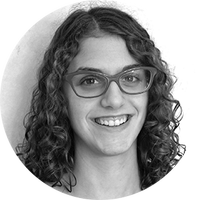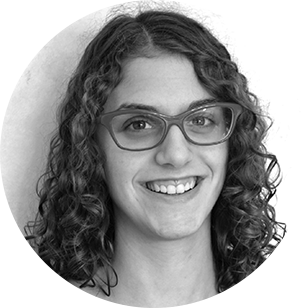How one college built an innovative degree program... in innovation
University of Colorado emphasizes the skills needed to translate ideas into action


A free daily email with the biggest news stories of the day – and the best features from TheWeek.com
You are now subscribed
Your newsletter sign-up was successful
Connor McCormick began his freshman year of college with a specific goal for himself: Start a business by the end of first semester.
McCormick, now a junior studying business administration, did just that. In fact, he has two businesses, one in parking analytics and the other in storytelling.
"I wanted to go to a school where that kind of entrepreneurial thinking would be promoted," he said. "It turns out that's really, really hard to find."
The Week
Escape your echo chamber. Get the facts behind the news, plus analysis from multiple perspectives.

Sign up for The Week's Free Newsletters
From our morning news briefing to a weekly Good News Newsletter, get the best of The Week delivered directly to your inbox.
From our morning news briefing to a weekly Good News Newsletter, get the best of The Week delivered directly to your inbox.
At the University of Colorado, Colorado Springs, he feels at home. In fall 2007, the school introduced a trademarked bachelor of innovation degree program, which administrators say is the first of its kind. Today, 384 students are enrolled to study innovation across 19 majors, ranging from digital filmmaking to chemistry to early childhood education. Terry Boult, a UCCS professor who founded the program, said that in running several of his own companies, he realized he wasn't finding recent graduates to hire with the skills he needed.
"I could hire good programmers. I could hire good business people," said Terry Boult, who founded the innovation program after teaching at elite institutions and running several of his own companies. "I just couldn't get them to work together."
Students tackle the innovation program on top of the regular course load for their specific majors. The courses in the accredited curriculum — focused largely on business strategy and design in addition to a cross-disciplinary core of each student's choosing in business, engineering, communications, or globalization — are designed to teach practical skills, as opposed to abstract theory. Innovation is more than a buzzword.
"Our definition of innovation is the transformation of ideas into impact," Boult said. "How do you take an idea and move it forward?"
A free daily email with the biggest news stories of the day – and the best features from TheWeek.com
To get practice moving ideas forward, each student takes a sequence of three classes that involve working in cross-disciplinary teams to complete projects for real-life clients. Their assignments could include anything from researching drones for an aerospace company to helping a blues musician ditch the cruise ship circuit and use a digital presence to build a following on land.
In the process of delivering projects to clients, students end up understanding just how much they still need to learn — particularly outside of the areas they major in.
"One of the effects the [program] has had on me, it helps me realize the gaps I have in my learning that I'm not going to get as a business student," McCormick said. "Because I'm out there building things rather than just taking classes, I realize I don't know how to program, and that would be really useful."
Of course, there are challenges associated with running such a new, unconventional degree program, like finding the right instructors to team-teach innovation classes. "Pure academics" don't typically take well to this kind of teaching, said Nina Polok, the degree's program executive.
"You got these [students] set up doing projects that are not projects that anyone has done before," Polok said. "You have to be able to deal with the ambiguity that arises, turning anything that happens into a learning opportunity."
Students accustomed to learning in traditional classrooms sometimes find the open-ended, creative approach daunting, Boult said. The freshman classes in innovation and entrepreneurship are designed to get students thinking differently by appealing to their creativity and drive.
After students graduate, they pursue a range of career options, Polok said. Unsurprisingly, some start their own businesses, while others score jobs at big-name companies, including Universal Studios, by selling their cross-disciplinary skills. Still others go onto graduate programs. Because a major in innovation is a foreign concept to employers outside the Colorado Springs area, instructors coach students on how to talk about what their bachelor's degrees mean.
Ultimately, the innovation faculty want their teachings to be accessible to as many students as possible. They chat with other universities, both in the U.S. and internationally, about how to implement similar innovation-based degree programs. Students and faculty also travel for short, multi-day sessions teaching other students the basics of innovation. There's interest from institutions in Colombia, Nicaragua, Brazil, Vietnam, and Saudi Arabia.
Boult emphasized that the Colorado Springs program isn't designed to be restrictive. He and Polok said they are fielding requests from other departments that want to add optional innovation degree paths to existing majors. And the admissions requirements for innovation degrees aren't any more stringent than the school's fairly non-selective general ones. Boult doesn't want to shut the door on students who don't excel in traditional classrooms but may thrive in a more hands-on, business-oriented learning environment.
"Diversity is really important. Diversity of thought, diversity of background," Boult said. "Some students might not have been doing really well because nothing has sparked them yet."
Julie Kliegman is a freelance writer based in New York. Her work has appeared in BuzzFeed, Vox, Mental Floss, Paste, the Tampa Bay Times and PolitiFact. Her cats can do somersaults.
-
 How the FCC’s ‘equal time’ rule works
How the FCC’s ‘equal time’ rule worksIn the Spotlight The law is at the heart of the Colbert-CBS conflict
-
 What is the endgame in the DHS shutdown?
What is the endgame in the DHS shutdown?Today’s Big Question Democrats want to rein in ICE’s immigration crackdown
-
 ‘Poor time management isn’t just an inconvenience’
‘Poor time management isn’t just an inconvenience’Instant Opinion Opinion, comment and editorials of the day
